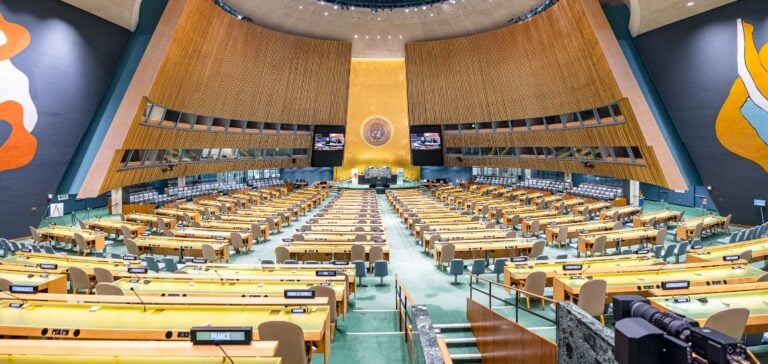Two weeks before the opening of the 29th Conference of the Parties (COP29) in Baku, Azerbaijan, the United Nations (UN) is warning about the alarming gap between current climate commitments and the goal of limiting global warming to 1.5°C. In a recently published report, UN Climate states that the current country contributions to emissions reduction are insufficient to keep temperature rise within this critical threshold, deemed essential to avoid disastrous consequences.
The current reduction commitments, known as Nationally Determined Contributions (NDCs), presented by the 195 signatories of the 2015 Paris Agreement, project only a 2.6% decrease in global greenhouse gas emissions by 2030 compared to 2019 levels. However, the Intergovernmental Panel on Climate Change (IPCC) of the UN recommends a 43% reduction to aim for the 1.5°C target. The synthesis of these commitments, updated annually by UN Climate, shows minimal progress, raising concerns that inaction could lead to massive economic losses and threaten billions of lives.
Goals to be Revised for COP30
According to Simon Stiell, Executive Secretary of the United Nations Framework Convention on Climate Change (UNFCCC), the current action plans fall far short of climate needs. Stiell urged countries to review their NDCs and adopt more ambitious policies before the next revision in 2025, prior to COP30. This update of contributions will be crucial to aligning goals with climate requirements.
In 2023, the World Meteorological Organization (WMO) reported record levels of greenhouse gas concentrations in the atmosphere, with carbon dioxide (CO₂) reaching an unprecedented accumulation rate. This trend further fuels the urgency, as experts warn that reduction targets will become increasingly difficult to achieve without immediate corrective measures.
The Consequences of Global Inaction
The United Nations Environment Program (UNEP) also released a critical analysis, stating that current policies are on track to increase global temperatures by approximately 3.1°C by the end of the century. Even when considering all conditional improvement pledges, often linked to financial support for developing countries, projections still suggest a warming of 2.6°C, far above the 1.5°C target.
Inger Andersen, UNEP’s Executive Director, stated that an unprecedented global mobilization is necessary to avoid making this target unattainable. She warned that the window to prevent surpassing 1.5°C is closing quickly and called for more decisive climate action.
Economic and Human Implications
The UN synthesis report stresses that the impacts of excessive warming would affect all global economies without exception. High levels of greenhouse gas pollution would lead to profound economic crises and social upheavals. The call from UN Climate is therefore to usher in a “new era of acceleration,” where countries must not only commit but also intensify efforts to reduce emissions.
As COP29 approaches, discussions will focus on climate finance, a key lever to help developing countries meet their reduction targets. Funding for energy transition and international solidarity will be essential to support the most vulnerable nations facing climate changes.





















